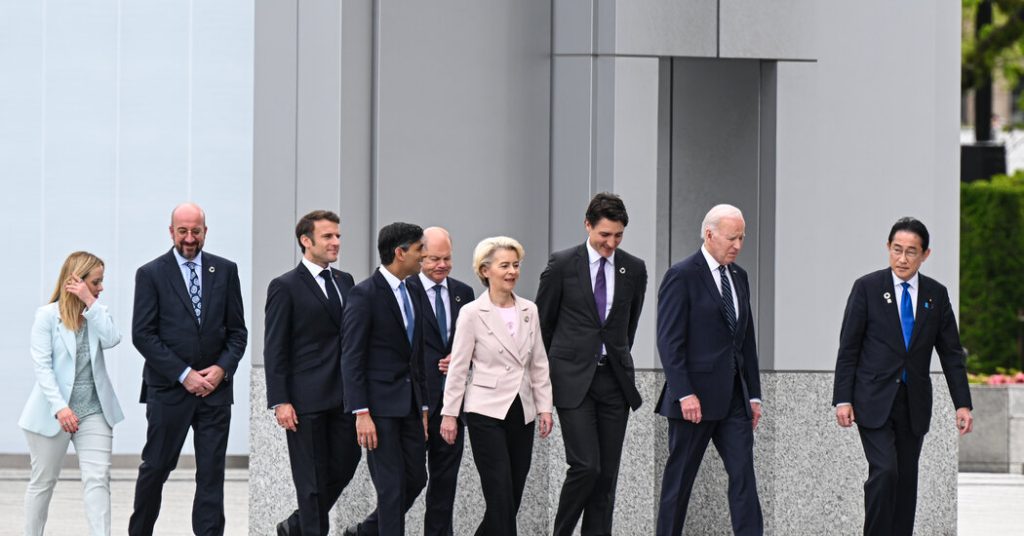When Prime Minister Giorgia Meloni of Italy convenes the leaders of the Group of 7 countries at a luxury resort hotel overlooking the Adriatic Sea, she will be hosting a group of leaders who are facing political challenges and uncertainties in their respective countries. This meeting comes at a time when many Western leaders are struggling with electoral losses, populism, and internal dissent. With Britain, France, Germany, the United States, Japan, and Canada all facing various political issues, the outcomes of the G7 summit could be influenced by the domestic situations of the leaders.
The declining influence of the G7, which accounts for a diminishing share of global gross domestic product, is accentuated by the absence of China and Russia, who are not part of the group. In an effort to reflect the changing global power dynamics, Prime Minister Meloni has invited leaders from non-Western countries to the summit. While these leaders will not participate in core sessions, they serve as a reminder of the shifting power dynamics in the world. The presence of leaders like Modi, Erdogan, Lula da Silva, and others highlights the changing landscape of global politics.
Domestic politics are likely to intrude on the G7 discussions, impacting the ability of leaders to commit to major trade agreements or sanctions. With leaders like Rishi Sunak of Britain on the brink of an election and others facing challenges within their own countries, the summit could be marked by uncertainty and limited commitments. The resurgence of far-right parties in Europe and the challenges faced by leaders like Macron and Scholz could create divisions among the Western leaders on key issues such as trade with China and sanctions against Russia.
While the leaders may struggle to find common ground on certain issues, there is agreement on important global issues such as support for Ukraine and efforts to broker a cease-fire in the Israel-Gaza conflict. Despite the challenges faced by the leaders in their respective countries, unity on critical issues is likely to be a unifying factor during the summit. The G7 leaders will also be tasked with navigating disagreements over how to handle the frozen Russian assets and provide financial support to Ukraine.
Prime Minister Meloni’s gesture of inviting new leaders to the summit reflects a recognition that the G7 is evolving and may need to adapt to new global power dynamics. While the traditional Western leaders face political challenges and uncertainties, the summit presents an opportunity for dialogue and cooperation on global issues. For Meloni, hosting the summit could provide a platform to showcase her leadership and diplomatic skills on the international stage, despite coming to power as a leader of a far-right party.
Overall, the G7 summit comes at a time of political upheaval and uncertainty for many Western leaders. While domestic politics may influence the discussions and outcomes of the summit, there is potential for unity on key global issues. As the leaders grapple with their own challenges, the summit offers an opportunity for dialogue, cooperation, and a renewed focus on critical global issues. Ultimately, the success of the summit will be measured by the ability of the leaders to navigate political uncertainties and find common ground on pressing global challenges.


